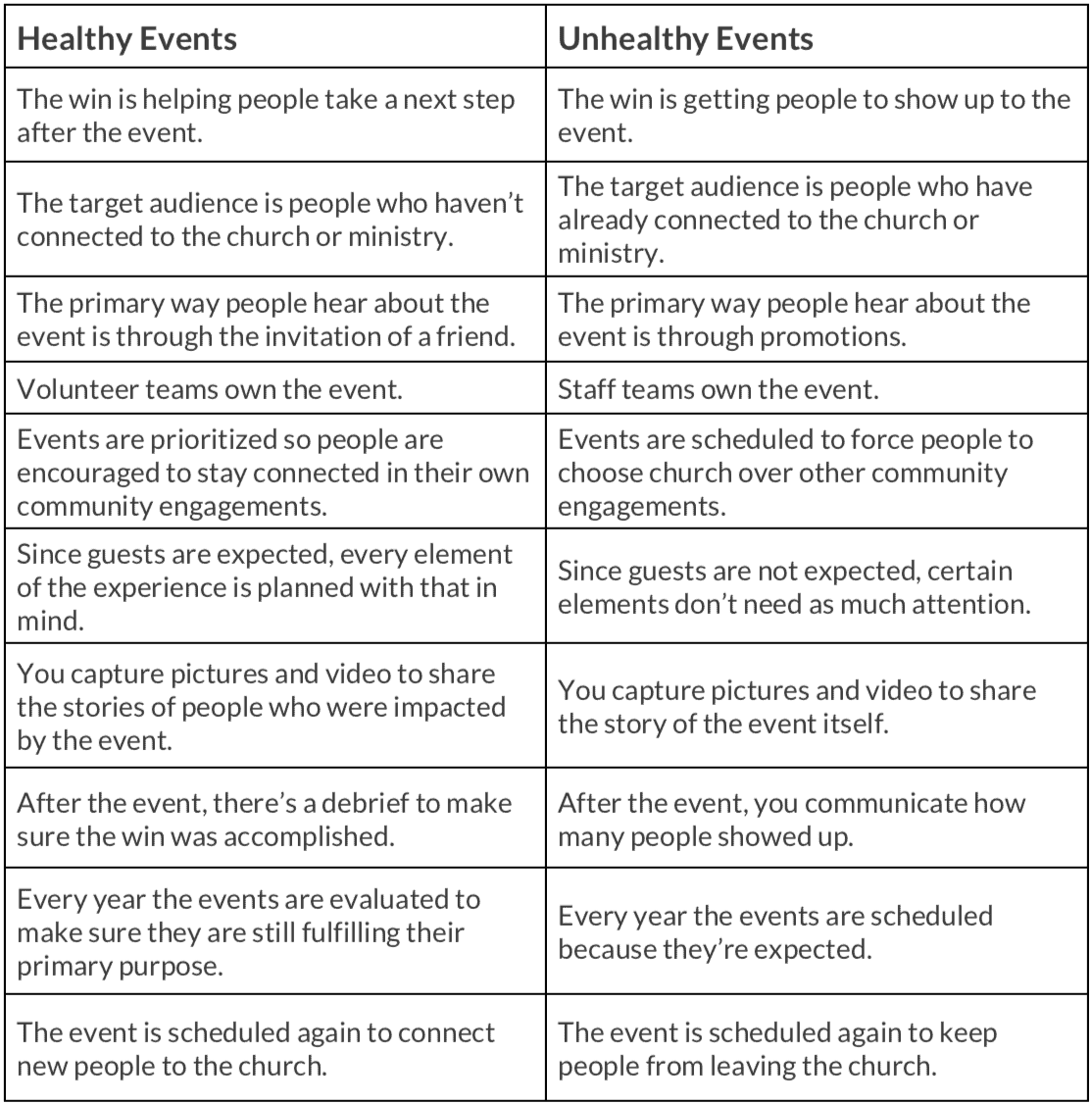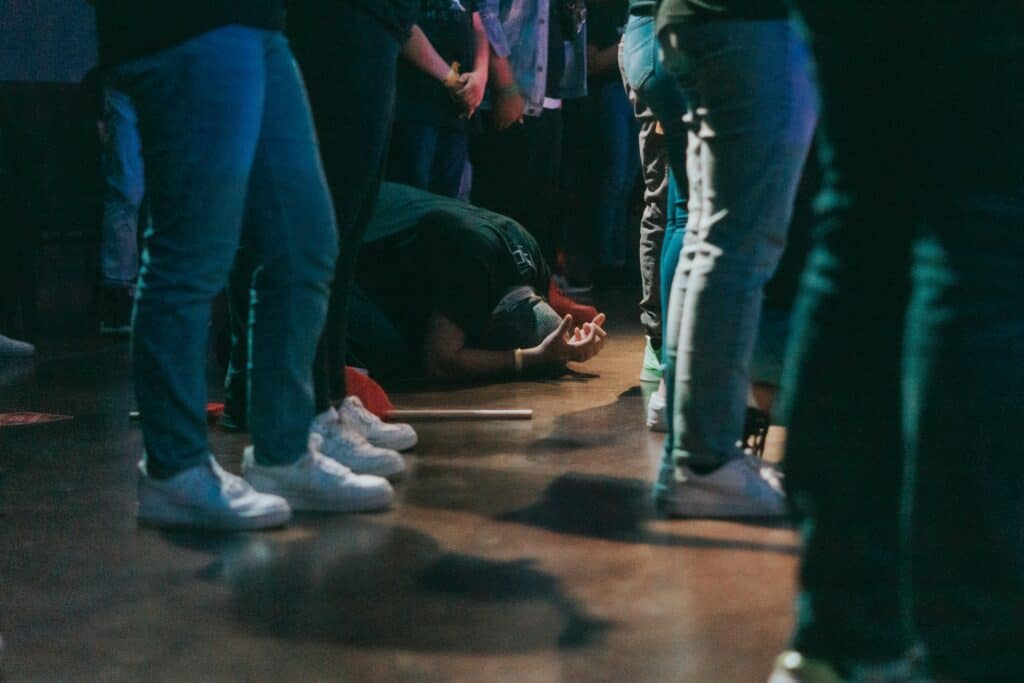You may assume based on things I’ve written before that I’m not a big fan of events.
If so, you would be right. 🙂
I think events can be effective, but generally speaking, I think events are killing the church.
If we want people to take a next step, we try to gather them at a specific time at a specific location and we teach them. Then, when people don’t show up to our events, we assume they are either unspiritual or uncommitted.
Do you know why we do events? Let me give you a few reasons…
- We do events because churches have always done events. It doesn’t matter if the event actually helps people or not, we do the event because we’re supposed to do the event.
- We do events because they’re easy to measure. If more people show up, we assume the event was successful and helpful.
- We do events because we’re lazy. It’s a lot easier to just throw events on the calendar than it is to think about how we might effectively help people take their next steps… especially if that involves engaging people in relationships.
- We do events because they justify staff positions. Staff members feel obligated to do events to prove the need for their positions.
- We do events because we have egos. It feels good to get up in front of a group of people and teach them. We feel fulfilled.
- We do events because we’re afraid to say no. Many times we don’t know when to say no because we haven’t established a clear vision and strategy.
That said, I do believe there is a place for events if they’re done right. Here’s a chart to help you consider what distinguishes a healthy event from an unhealthy one.
Healthy vs. Unhealthy Events

Pruning Your Events Calendar
If you haven’t before, consider listing every event your church offers in a given calendar year. Then, as a team, assess whether or not it’s healthy.
Use this as an opportunity to either get the unhealthy events in the healthy column. Or, if that’s not possible, maybe it’s time you stopped offering the unhealthy events.
Then, the next time you try to play the event card, ask this question: “If we can’t do an event, then how might we help people take their next steps toward Christ?”
There may be instances when an event is the right call. But my concern is that we seem to overplay that tactic.
If we get aggressive about eliminating events on our church calendars, the alternatives for helping people take their next steps are going to look a lot like the discipleship relationships we see modeled in the Bible.
Whatever you do, don’t continue scheduling the event because you’ve always done it. That’s one of the reasons why events are killing the church.








Leave a Reply